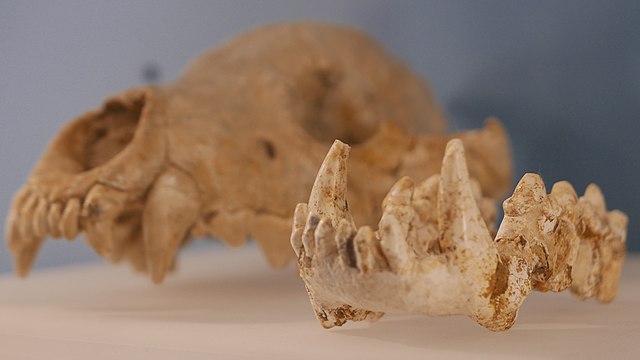The past few years have seen a renaissance of prehistoric nature documentaries. From AppleTV+’s Prehistoric Planet to the recent Netflix series Life on Our Planet, numerous studios have seized an opportunity to create riveting series in the vein of the groundbreaking BBC Walking with Dinosaurs with updated modern graphics that make their subjects seem more realistic and tangible than ever. Paired with such giants of narration as Sir David Attenborough and Morgan Freeman, these shows are also making great strides in bringing up-to-date scientific knowledge to the public about these creatures that hold such fascination for us. Yet in one specific way, the writing of those shows Heather and I have recently watched has not changed in the past thirty years, and it leaves my methodological sensibilities deeply unsettled.
Whether portraying the long duree of our planet’s history (like Life on Our Planet) or focusing in on just one period of prehistory (like Prehistoric Planet), these types of nature documentaries often deal with the evolution of life over millions of years, highlighting various “firsts” of biological and social ingenuity that contributed to the vast diversity of our modern world. This is an understandable approach, seeing as such firsts are both essential to understanding how we’ve gotten to where we are and easier for more casual audiences to follow and remember. The draw of these shows is also understandably their narrative look at the past, constructing compelling stories to drive the actions of the recreated animals that are the reason we’re all watching. The combination of these two interpretive impulses, however, combine into a tendency to overstate the certainty with which paleontologists know certain information.
The study of prehistoric life is perhaps one of the most uncertain fields in terms of available sources and data to be studied. The process of fossilization is so particular and random that scientists estimate less than one percent of all animal species that have ever lived have become fossils–and the further back they lived, the rarer their fossils are. When I hear narrators state that so-and-so creature was the first to walk on land or at one time made up seventy-five percent of all living land animals, then, it’s hard not to scoff. There is no way we know that given the paucity of the fossil record, and I’m sure that any paleontologist worth their degree would rephrase to say “the first to walk on land that we know of” or “makes up seventy-five percent of all fossils found from that period.” A similar problem presents itself when discussing behavioral traits. As fossils are purely physical evidence–and usually only that of bones and other hard hard at that–any information concerning how animals acted is pure speculation. Granted, that speculation is usually fueled by observing how modern descendants or animals in similar roles or biomes act, but that is an unprovable hypothesis that could very well be wrong or misinterpreted from incomplete or misleading evidence.
Some might argue that adherence to such ambiguity and language that emphasizes uncertainty detracts from the satisfaction of these shows’ narrative, or even makes them lose credibility with the general public. I, however, think quite the opposite. Just like in popular history, I think a frank discussion of sources and the process through which knowledge is created can only be a benefit in works like these. A general audience may not be initiated to all the intricacies of academic disciplines, but they are certainly not unintelligent and will more often than not notice when conclusions are delivered without a sufficiently transparent logical process. Whatever minor elements of narrative forcefulness might be lost with such methodological discussion would, in my opinion, be more than made up for in educational value, helping the public understand a bit more comprehensively how these theories have been reached and even possibly combatting the tide of misinformation that still exists concerning the history of our planet.
